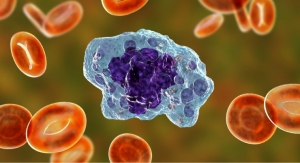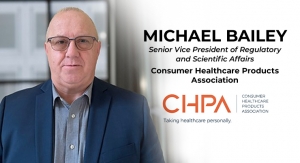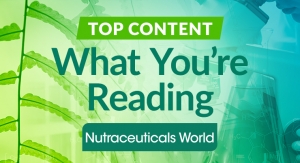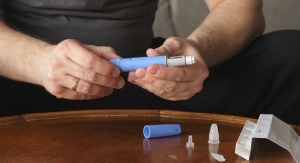05.18.22
The U.S. Food and Drug Administration (FDA) recently issued a consumer update, warning that it has found some bodybuilding products marketed as dietary supplements may illegally contain steroids or steroid-like substances associated with health risks including life-threatening liver injury.
The agency said that it has received hundreds of adverse event reports, including evidence of serious liver injury. Anabolic steroids have also been associated with serious reactions including severe acne, hair loss, altered mood, irritability, aggression, and depression. When it comes to life-threatening reactions, steroids have been associated with kidney damage, heart attack, stroke, pulmonary embolism, and deep vein thrombosis.
According to the agency, these bodybuilding products are promoted as hormone products and/or alternatives to anabolic steroids for increasing muscle mass and strength.
“Many of these products make claims about the ability of the active ingredients to enhance or diminish androgen, estrogen, or progestin-like effects in the body, but actually contain anabolic steroids or steroid-like substances, synthetic hormones related to the male hormone testosterone,” the agency reports.
These bodybuilding products labeled as dietary supplements were found both online and in retail stores. However, many of these products are not dietary supplements at all and are actually illegally marketed unapproved new drugs which have not been reviewed for safety, efficacy, or quality before reaching the market.
Further, these ingredients are sometimes hidden in products promoted for bodybuilding. “The companies making these products are breaking the law by exploiting an easily accessible marketplace to get these products to consumers. In the end, it’s consumers who may not understand the risks who are put in harm’s way by taking dangerous ingredients from products promoted as having miraculous results or making empty promises,” the agency said, noting that the risk can be increased when a person uses two or more bodybuilding products at once, including stimulants or products providing false assurances of liver protection.
The agency can also pursue other regulatory actions as well as enforcement actions against the sellers of these illegal products. “However, this can be challenging, particularly when sellers operate exclusively online. Firm names or websites often are easily changed, or products can be relabeled to evade authorities or scam consumers,” FDA reports.
CRN Echoes Warning
Andrea Wong, PhD, senior vice president of scientific and regulatory affairs for the Council for Responsible Nutrition (CRN) agreed with FDA’s recommendations about how to best avoid steroids and steroid-like ingredients. Her advice to consumers: place trust in nationally-recognized brands and trusted retailers, talk to a healthcare practitioner, and steer clear of products making extreme claims.
“Legitimate sports nutrition supplements—the ones most consumers would encounter in conventional stores or mainstream shopping platforms—are safe, beneficial, and help consumers meet their fitness goals,” Wong said. “As with other dietary supplements, these products are meant to complement other smart lifestyle choices, not to replace the hard work and healthy habits that athletes must develop to be well-conditioned.
“CRN continues to call for greater enforcement against products containing substances such as illegal steroids,” Wong continued. “We supported the Designer Anabolic Steroid Control Act of 2014, which gave the Drug Enforcement Administration additional authority to identify and quickly respond when new designer anabolic steroids are falsely marketed as dietary supplements. CRN reminds consumers to seek products from nationally-recognized brands or store brands from trusted retailers, avoid products that promise extreme results, research companies and supporting science, and always talk to a healthcare practitioner for advice on responsible supplement use. Visit our website for more consumer tips on selecting supplements.”
The agency said that it has received hundreds of adverse event reports, including evidence of serious liver injury. Anabolic steroids have also been associated with serious reactions including severe acne, hair loss, altered mood, irritability, aggression, and depression. When it comes to life-threatening reactions, steroids have been associated with kidney damage, heart attack, stroke, pulmonary embolism, and deep vein thrombosis.
According to the agency, these bodybuilding products are promoted as hormone products and/or alternatives to anabolic steroids for increasing muscle mass and strength.
“Many of these products make claims about the ability of the active ingredients to enhance or diminish androgen, estrogen, or progestin-like effects in the body, but actually contain anabolic steroids or steroid-like substances, synthetic hormones related to the male hormone testosterone,” the agency reports.
These bodybuilding products labeled as dietary supplements were found both online and in retail stores. However, many of these products are not dietary supplements at all and are actually illegally marketed unapproved new drugs which have not been reviewed for safety, efficacy, or quality before reaching the market.
Further, these ingredients are sometimes hidden in products promoted for bodybuilding. “The companies making these products are breaking the law by exploiting an easily accessible marketplace to get these products to consumers. In the end, it’s consumers who may not understand the risks who are put in harm’s way by taking dangerous ingredients from products promoted as having miraculous results or making empty promises,” the agency said, noting that the risk can be increased when a person uses two or more bodybuilding products at once, including stimulants or products providing false assurances of liver protection.
The agency can also pursue other regulatory actions as well as enforcement actions against the sellers of these illegal products. “However, this can be challenging, particularly when sellers operate exclusively online. Firm names or websites often are easily changed, or products can be relabeled to evade authorities or scam consumers,” FDA reports.
CRN Echoes Warning
Andrea Wong, PhD, senior vice president of scientific and regulatory affairs for the Council for Responsible Nutrition (CRN) agreed with FDA’s recommendations about how to best avoid steroids and steroid-like ingredients. Her advice to consumers: place trust in nationally-recognized brands and trusted retailers, talk to a healthcare practitioner, and steer clear of products making extreme claims.
“Legitimate sports nutrition supplements—the ones most consumers would encounter in conventional stores or mainstream shopping platforms—are safe, beneficial, and help consumers meet their fitness goals,” Wong said. “As with other dietary supplements, these products are meant to complement other smart lifestyle choices, not to replace the hard work and healthy habits that athletes must develop to be well-conditioned.
“CRN continues to call for greater enforcement against products containing substances such as illegal steroids,” Wong continued. “We supported the Designer Anabolic Steroid Control Act of 2014, which gave the Drug Enforcement Administration additional authority to identify and quickly respond when new designer anabolic steroids are falsely marketed as dietary supplements. CRN reminds consumers to seek products from nationally-recognized brands or store brands from trusted retailers, avoid products that promise extreme results, research companies and supporting science, and always talk to a healthcare practitioner for advice on responsible supplement use. Visit our website for more consumer tips on selecting supplements.”




























